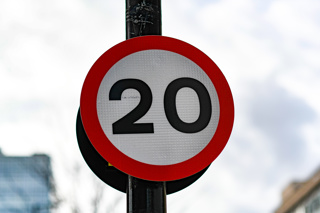Fleets could be at increasing risk of motor insurance fraud as a survey by a specialise law firm reports a rapid spread in the crime.
The fifth annual Motor Fraud Index from specialist law firm Keoghs has revealed that nine new towns and cities entering the highest risk category in the lat 12 months.
Regions where there is comparatively smaller risk of motor fraud have also become fewer and further between, with the proportion of postcode areas designated as ‘low risk’ dropping from 33% a year ago to just 19%.
Keoghs’ annual Motor Fraud Index is based on the thousands of suspicious claims investigated by Keoghs on behalf of its insurer clients. It highlights the worst blackspots and shows the spread of fraud across England and Wales.
Topping the table for the second year running is Birmingham, followed closely in the list of the five worst-affected areas by Liverpool, East London, North London and Bradford.
With the exception of Bolton, every one of the 40 worst-affected areas saw a net increase in the number of suspect claims between 2011 and 2012. Only seven of the 108 postcode areas in England and Wales saw a decline in suspicious claim numbers.
Of particular concern is the rate of increase in the Greater London area, where the total volume of suspect claims has increased by 115% in the past 12 months alone.
The increasing rate of fraud illustrated in virtually every region of the country by Keoghs’ Motor Fraud Index is consistent with the latest ABI figures, which show that the number of fraudulent claims being detected by insurers has increased by nine per cent in the past 12 months.
James Heath, director of counter-fraud strategy at Keoghs, said: “These results show that fraudulent motor claims have continued to spread rapidly across England and Wales.
“The volume of claims flagged as suspicious by insurers has increased across the board and, at the same time, the geographical distribution has continued to spread out from the well-known problem areas.
“The number of people turning to fraud continues to rise as the UK’s economic climate remains difficult. Insurance fraud has become an organised criminal enterprise in many areas of the country and there is evidence that high levels of unemployment may be increasing the temptation for people to take part in these scams.
“Advances in identification techniques and joined-up investigation of claims between insurers and law enforcement agencies has allowed insurers to cast their net much more widely than was previously possible, and fraud is being discovered virtually everywhere we look.”



















Login to comment
Comments
No comments have been made yet.